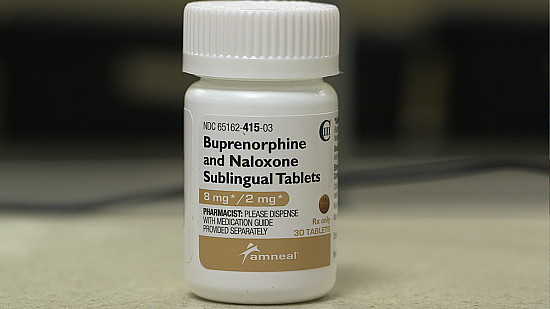Gene may explain why some smokers must fight to quit

Smokers struggling to quit may feel they are living the myth of Sisyphus, who was condemned for eternity to roll a boulder up a mountain and then watch it roll down again. Why is it so incredibly hard to quit—even when you are desperate to do so? For some people, the answer may be in their genes.
In a report published online in the American Journal of Psychiatry, a team led by Dr Li-Shiun Chen of the Washington University School of Medicine identified a “high risk” version of a nicotine receptor gene that is more common in heavy smokers. The scientists compared thousands of smokers with and without the gene who were enrolled in two different studies. Those with the high-risk gene took two years longer to quit smoking. However, there was one silver lining in the cloud of tobacco smoke: smokers with the high-risk gene were three times more likely to respond to smoking cessation therapies.
Try, try again
The study provides hope for even hardcore smokers, and is consistent with what doctors see in the clinic. “It does typically take repeated attempts to kick the habit, and past failures are not predictive of future success,” says Dr. William Kormos, editor in chief of Harvard Men’s Health Watch and a primary care doctor at Massachusetts General Hospital. “All smokers should try to quit as often as possible. Practice makes perfect.”
However long it takes, quitting is beneficial. In a study published in the current issue of Archives of Internal Medicine, researchers pooled results from multiple studies of how smoking affects one’s risk of premature death. Data from 17 studies conducted in seven countries showed that quitting smoking reduces the risk of dying—even in people in their 80s. “Even older people who smoked for a lifetime without negative health consequences should be encouraged and supported to quit,” the researchers wrote.
Don’t wait too long
A commentary in the same issue of the Archives pointed out that one in every two smokers will eventually die from the habit. And that doesn’t even include the impact on daily quality of life. Yet even smokers who try like crazy to quit still end up like Sisyphus. What can they do?
For one thing, don’t wait for a serious health crisis to seek help for smoking cessation. “All too often, the motivating factor for the successful quit attempt is a major health event, like cardiac bypass, stroke, or lung cancer,” Dr. Kormos says. “This finally motivates the patient to quit and they are usually successful.”
For others, the turning point is a “near miss,” such as admission to the hospital for chest pain. “So, the key is trying to get people to create the urgency that these health problems create, without having to wait for the health problem,” Dr. Kormos says.
Stubbornness: the key to success
Once you have decided to go for it and set a quit date, what’s next? First off, don’t be discouraged by past unsuccessful attempts. Just because nicotine replacement therapy didn’t work before doesn’t mean it won’t work this time.
The average person quits five to seven times before succeeding. To get there, it’s wise to try different things at the same time. For example, a form of counseling called cognitive behavioral therapy has helped many people to quit, especially in combination with smoking cessation tools like nicotine patches or medications.
Options to help you stop smoking:
- Set a quit date; get rid of all cigarettes and tobacco products from your home, office, and car; don’t let people smoke around you; and once you quit, don’t smoke — not even a puff!
- To avoid or reduce symptoms of withdrawal, use nicotine replacement aids including patches, inhalers, lozenges, and gum.
- Ask your doctor about prescription smoking cessation tools such as bupropion (Wellbutrin, Zyban, generic) and Varenicline (Chantix).
- A meditation technique called mindfulness training can help you weather the mood changes and cravings that come after quitting.
- Get support from fellow quitters by finding group counseling and self-help programs for overcoming addictions and compulsions.
- Some studies suggest that hypnosis might help you stop smoking by reducing cravings, bolstering willpower or increasing motivation to take care of your health.
| Stop-smoking aids | |||
| Aid | Advantages | Disadvantages | Cost |
| Nicotine patch | Provides a stable level of nicotine in the blood for 16 to 24 hours; easy to use | Takes two to four hours to hit peak level; user can’t adjust dose to meet cravings | $3 to $4 a day |
| Nicotine gum | Rapid rise in blood level of nicotine; user can control dose to respond to cravings; oral substitute for a cigarette | Must be chewed properly to get nicotine and avoid upset stomach; can cause mouth soreness or indigestion | $4 to $7 a day |
| Nicotine inhaler | Rapid rise in nicotine; user controls the dose; hand-to-mouth substitute for smoking | Requires frequent puffs; can irritate the mouth and throat | $7 to $20 a day |
| Nicotine nasal spray | Offers the quickest increase in blood nicotine levels; user controls the dose | Can irritate the nose and throat; can cause cough | $5 to $21 a day |
| Nicotine lozenge | User controls the dose; oral substitute for smoking | Can cause sore mouth, indigestion, hiccups | $3 to $5 a day |
| Bupropion (Wellbutrin, Zyban, generic) | Easy to use; no nicotine involved | Can cause insomnia, dry mouth, agitation; shouldn’t be used by anyone with a seizure or eating disorder | $2 to $19 a day* |
| Varenicline (Chantix) | Easy to use; no nicotine involved | Can cause nausea, headache, insomnia, and abnormal dreams; in rare cases, may cause suicidal thinking | $6 a day* |
| *These prescription drugs may be covered by your health insurance plan and therefore require only the cost of your copay. | |||
Source: Overcoming Addiction: Paths toward recovery (Harvard Health Publishing, 2011)
About the Author

Daniel Pendick, Former Executive Editor, Harvard Men's Health Watch
Disclaimer:
As a service to our readers, Harvard Health Publishing provides access to our library of archived content. Please note the date of last review or update on all articles.
No content on this site, regardless of date, should ever be used as a substitute for direct medical advice from your doctor or other qualified clinician.















